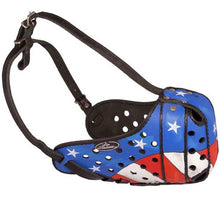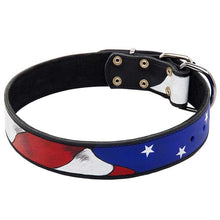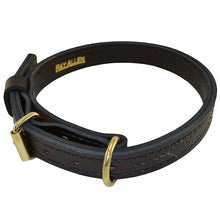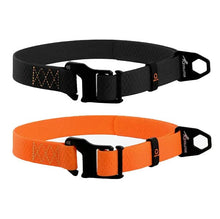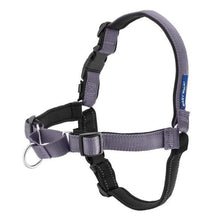Destructive Chewing: Advanced Strategies to Redirect and Manage Your German Shepherd's Behavior

It’s totally normal for German shepherds to chew on objects. However, when chewing gets out of control and destructive, it can become a costly and even dangerous problem.
Most dogs engage in normal chewing. As puppies, they chew anything they can get their teeth on. They’ll chew when they’re teething, to investigate objects, learn about their world, and self-soothe.
This normal chewing behavior usually begins to slow down when a puppy reaches about 6 months old. However, German shepherds enjoy chewing throughout their lifetime and enjoy using their powerful jaws. They need plenty of safe chews and toys that they are free to bite on.

After all, chewing is a natural behavior for dogs. It helps them keep their teeth and gums healthy, they enjoy it, it can serve as a distraction, can reduce stress, and provides hours of mental stimulation throughout their lifetime.
As a dog owner, it’s up to you to teach your puppy what’s acceptable to chew on. It’s also up to you to protect your belongings and home from sharp puppy teeth. During puppyhood, the best way to do this is to keep all personal or potentially dangerous objects out of your puppy’s reach.
For those times when your dog chews something forbidden, a firm “no” and redirection to one of their chew toys will eventually teach them what they are allowed to chew on. Using an X-pen when they’re not supervised can also prevent them from chewing on something dangerous, like an electrical cord.

German shepherds are smart and with consistent redirection and praise, they quickly learn what is off-limits. This investment into consistent training will set them up for a lifetime of good habits and help you protect your home.
But what happens if your puppy grows up and is still chewing or has even become destructive? To curb destructive chewing once it becomes a habit is harder to deal with than training a dog to chew only their toys.
Before we look at that, here are some common examples of what destructive chewing is. Destructive chewing includes the chewing (and digging at):

- Crates and pens
- Carpet, rugs, flooring
- Fabric and leather furniture
- Wooden furniture
- Doors, baseboards, windowsills
- Clothing and shoes
- Bedding
- Cupboard doors
- Trash
- And more
Although it requires some detective work to try to figure out what is triggering the destructive chewing, there are strategies to prevent and help manage the behavior. Some common problems that can cause this behavior in German shepherds include:
Lack of Exercise
German shepherds are herding dogs and are typically very active. Of course, some dogs prefer just to hang out but for the most part, they are a very busy breed that needs a lot of physical movement.

When their physical needs aren’t met, they get easily frustrated and bored. A lack of exercise can also cause stress, anxiety, and depression, all of which can easily lead to destructive chewing.
To help prevent destructive chewing caused by lack of exercise, the obvious solution is that the dog needs more exercise. Most dogs require exercise twice a day for about an hour depending on their intensity, age, physical condition, and any health problems they may have.
Some ideas to increase their exercise could include hiring a professional dog walker, enrolling in a class (swimming, dock diving, etc), playing fetch or frisbee, tossing fitness rings, building an agility course, teaching them to find objects, tug of war, flirt pole, and playing with other dogs.

Lack of Mental Stimulation
German shepherds are very smart. It’s just as important to exercise their mind as their bodies. Fortunately, when they are outdoors exercising, they’re getting mental stimulation by being outdoors and enjoying the fresh air.
However, when you add some training and challenges to their day, it helps them burn off even more energy. By adding more mental stimulation, will most likely find that your dog can relax much easier and may even need a little less activity.
Mental stimulation reduces boredom, increases your dog’s confidence, strengthens your bond, helps reduce anxious behavior, and is fun for you and your dog, which may result in less destructive chewing.

Mental stimulation can easily be provided in the form of training. It can be simple or complex. Beyond basic obedience, how much you want to teach your dog is up to you. However, there are opportunities to train your dog all around you. You can watch some videos, read a book, hire a trainer, or even join a club.
Separation Anxiety
German shepherds are often called Velcro dogs because they form such strong bonds with their owners. They can also be prone to separation anxiety. For example, if they are used to being with you all day and then find themselves alone, it can trigger it.
Some symptoms of separation anxiety include destructive chewing, whining, howling, barking, pacing, restlessness, digging, trying to escape, and inappropriate urination and defecation. Any dog showing signs of separation anxiety should have a physical with a vet to rule out a health problem.

Separation anxiety can vary from mild to severe. The treatment will vary depending on the cause and the severity. Mild separation anxiety can often be eased with more exercise, soothing chews, safe chew toys, and counterconditioning (which is beyond the scope of this article).
If you’re dealing with separation anxiety, it’s a good idea to talk to your vet and get professional help from a trainer or behaviorist. However, there are some ways that you can help reduce mild separation anxiety, such as:
Spending some quality time with your dog before you leave and when you return home, making sure your dog has been able to get some exercise, is fed, and has had a bathroom break before you leave, staying upbeat when you leave, giving a high-value treat before you go, and hiring someone to check on your dog when you’ll be gone for long hours.

Stress and Frustration
Stress and frustration can trigger destructive chewing. Stress and frustration can be momentary (for example, strange dogs or strange workers are in your yard). Or it can be ongoing (such as being confined when recovering from an injury or there are ongoing home repairs).
Some clever dogs will even use destructive chewing as a way to communicate their frustration over a situation as a way to get attention (such as when they want to go out and play but are being ignored).
To help prevent this type of destructive chewing, it helps to prevent exposure to things that trigger the behavior. When that isn’t possible, firm yet gentle correction, redirection to an appropriate item to chew, and even confining a dog with the place command until they are calm, can be helpful. Of course, always making sure they get some form of exercise or playtime when it’s over will help them burn off excess energy.

In conclusion, you can help prevent destructive chewing by providing your German shepherd with the following:
- Exercise
- Playtime
- Mental stimulation
- Training
- Chew toys/treats
- Attention
- Stable home environment
- Feeding schedule
- Bathroom breaks
- Reducing stress and anxiety
- Providing vet care when needed
- Removing temptations
- Managing their environment as much as possible
- Feeding a healthy diet
What isn’t helpful and can make the problem worse:
- Harsh corrections after the fact
- Yelling or screaming
- Locking the dog up after the damage is done
- Spanking or using an ecollar as punishment
- Shaking or grabbing the dog
- Punitive reactions
- Threatening body language
- Tying destroyed objects to their collar
- Locking them outside, isolation
- Holding back affection and exercise

We hope that you find these tips helpful to prevent or correct a chewing problem. Remember, there is help out there if your dog develops this behavior and it is correctable. As always, please feel free to share with your friends.
You might also like: 7 Reasons Why Dogs Get The Zoomies




